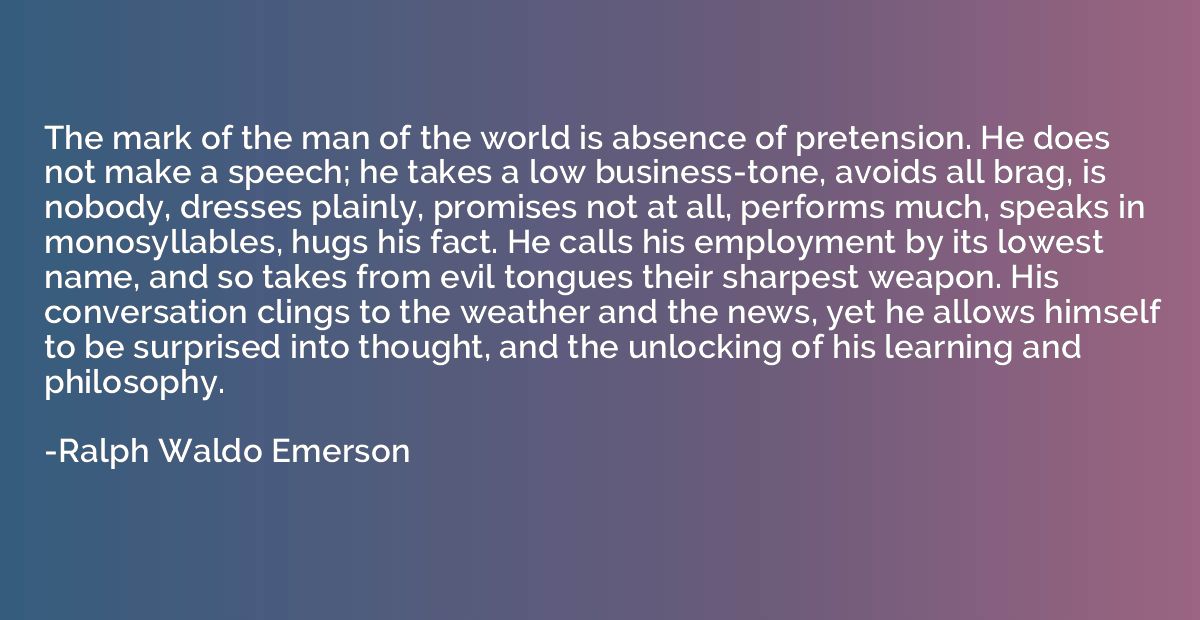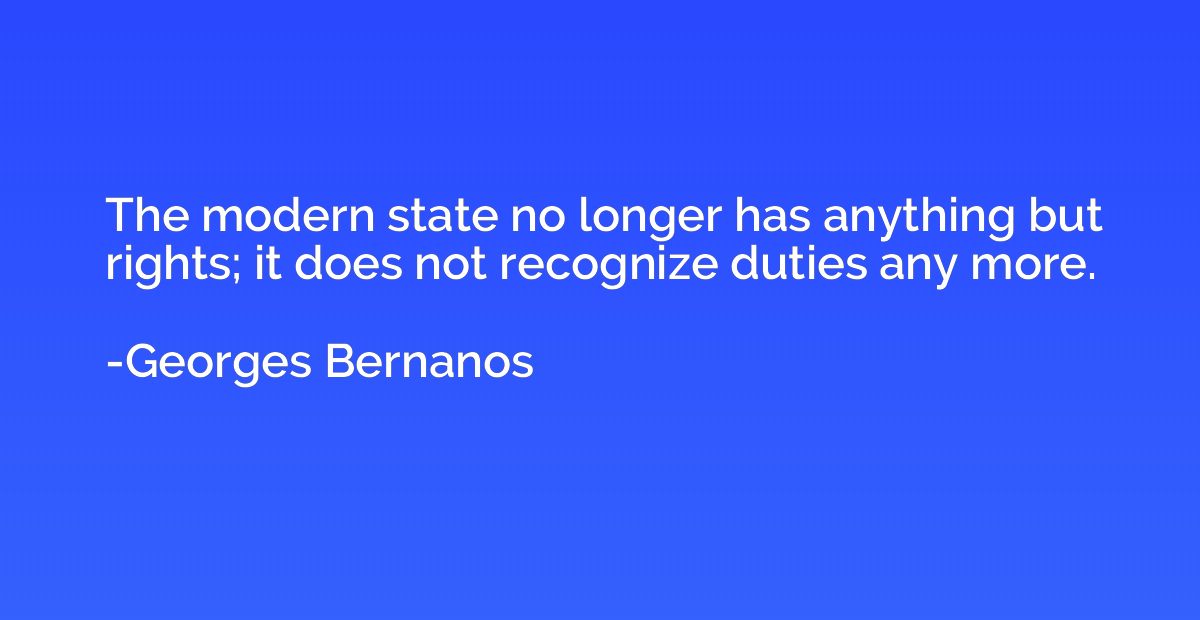Quote by Ralph Waldo Emerson
The mark of the man of the world is absence of pretension. He does not make a speech; he takes a low business-tone, avoids all brag, is nobody, dresses plainly, promises not at all, performs much, speaks in monosyllables, hugs his fact. He calls his employment by its lowest name, and so takes from evil tongues their sharpest weapon. His conversation clings to the weather and the news, yet he allows himself to be surprised into thought, and the unlocking of his learning and philosophy.

Summary
This quote highlights the characteristics of a truly sophisticated individual who is unassuming and unaffected by pretentiousness. Such a person avoids any self-aggrandizement, speaking humbly and simply, and dressing modestly. By downplaying their achievements, they disarm critics and detractors. They engage in commonplace conversations about everyday topics, but their genuine curiosity and intellect shine through when provoked. They are not afraid to share their knowledge and philosophical insights, providing unexpected depth beyond their unassuming demeanor. This quote celebrates the understated charm and wisdom of the man who remains grounded amidst the complexities of the world.














